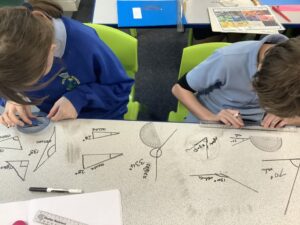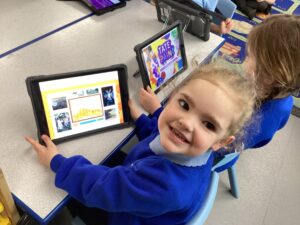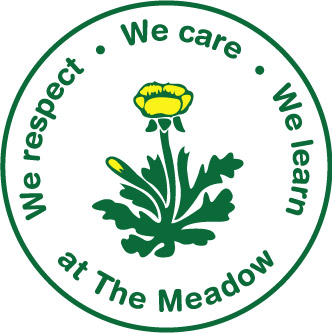Curriculum
Our Curriculum Statement
Intent
Our school motto: ’We respect. We care. We Learn’ is very much at the heart of our curriculum. We aim to provide a curriculum that equips pupils for the future at all levels.
Learning is a change to long-term memory. The ability to learn is underpinned in all curriculum subject areas by the teaching of skills, knowledge, concepts and vocabulary. There are clear, identified end points in each phase of learning which build upon what has been taught before and gives pupils the required knowledge and skills for their next stage of learning. However, our curriculum is not solely focused on academic subjects and achievement as we provide pupils with rich learning experiences, educational visits, residentials and extra-curricular activities. We want children to have fun at school and talk about their primary school years as being full of great memories.

Implementation
Subject Leadership: The role of the subject leader is pivotal in the successful implementation of our curriculum. We aim for all subject leaders to have the knowledge, expertise and practical skill to be able to lead their areas effectively. Each curriculum subject has a dedicated subject leader with clear roles and responsibilities. They are responsible for the curriculum design, delivery and impact in their own curriculum area. Subject leaders and leaders at all levels, including Governors, regularly review and quality assure the subject areas to ensure that is being implemented well and coverage, breadth and balance is adequate.
Our 2 or 3 year rolling programme (depending on key stage) covers all the National Curriculum (2014) requirements for Science, History, Geography, Art, Music DT and Computing. The Cambridgeshire Agreed Syllabus Curriculum requirements are used for RE (see separate plan). PE and PSHE (incorporating RSE & Drugs Education) is taught according to an age appropriate programme from Cambridgeshire County Council. Core elements of English and Mathematics are taught discreetly and within the rolling programme meaningful links are made. The rolling programme meets the needs of our mixed age classes and allows for flexibility in class structure.
The curriculum at The Meadow is carefully mapped out by Subject Leaders to ensure that pupils acquire knowledge, vocabulary and skills in a well-thought out and progressive manner in every curriculum subject ensuring sufficient coverage across each subject over time. New learning is based upon what has been taught before and prepares pupils for what they will learn next. There are clear end points which pupils work towards on their learning journey. We know that if our pupils are learning our curriculum, they are making progress and are being prepared for the next stage of their educational journey.
For most of our subjects, we use our Curriculum Progression Documents to match content with teaching as well as a variety of planning resources as we believe that following one programme does not provide the bespoke teaching and learning experience that we want for our pupils.
Both Core and Foundation lessons are designed to provide our pupils with the scaffolding required to access the learning at all levels. We recognise that not all learning needs to be captured in the written form and or by every child. Whole class books, video or sound recordings, photographs or conversations/observations are often just as valuable in demonstrating understanding.
We place great emphasis on pupil engagement and pupils have the opportunity for self-initiated learning. Pupil voice is used to support our decision making at The Meadow. To implement our intent, we ensure that our children are invested in their learning, making a positive contribution to the planning and design of our curriculum. Lessons are engaging and are designed to interest, inform and inspire our children.
At the Meadow, we place great emphasis on helping children remember knowledge content through revisiting and building on previous learning. Our wider curriculum has ‘Golden Threads’ which are woven through most of our Subject areas. In each subject, pupils will learn new knowledge and develop their skills with activities, tasks and experience using the Golden Threads. Through this ‘forwards-and-backwards engineering’ of the curriculum, all pupils return to the same concepts over and over and gradually build understanding .Knowledge and skills will then be embedded and secured so that children are ready for their next phase of learning.
| Subject | The 3 Golden Threads |
| Art |
|
| Music |
|
| History |
|
| Geography |
|
| DT |
|
| Science |
|
| PE |
|

Impact
Pupils will be able to recall knowledge and skills independently weeks or months after a theme has been taught. Checking that pupils are learning will enable pupils and teachers to see if their fluency and mastery is incrementally improving and therefore impact has been achieved.
Monitoring and Evaluation: A curriculum subject leader is responsible for the monitoring and evaluation of their own subject area. The information from the monitoring and evaluation then forms the basis of the impact assessment for that curriculum area. Judgements on the impact of the curriculum on pupils is based upon a triangulation of different monitoring and evaluation activities within school. Work and book looks, pupil voice discussions, outcomes of assessments and quality of teaching and learning are all used at tools to help senior leaders assess the impact of the curriculum.
Assessment is not excessive or onerous as it is part of the day-to-day practices of the classroom. Teachers ensure that pupils embed key concepts in their long term memory. Key skills and concepts for curriculum areas are revisited throughout the year and applied in different contexts. Pupils revisit prior learning in their books as an introduction to their new learning and this provides a context upon which pupils can integrate their ‘new knowledge’ into a wider context. Assessments are reliable and are moderated to ensure that expected outcomes are fully understood by all staff.

